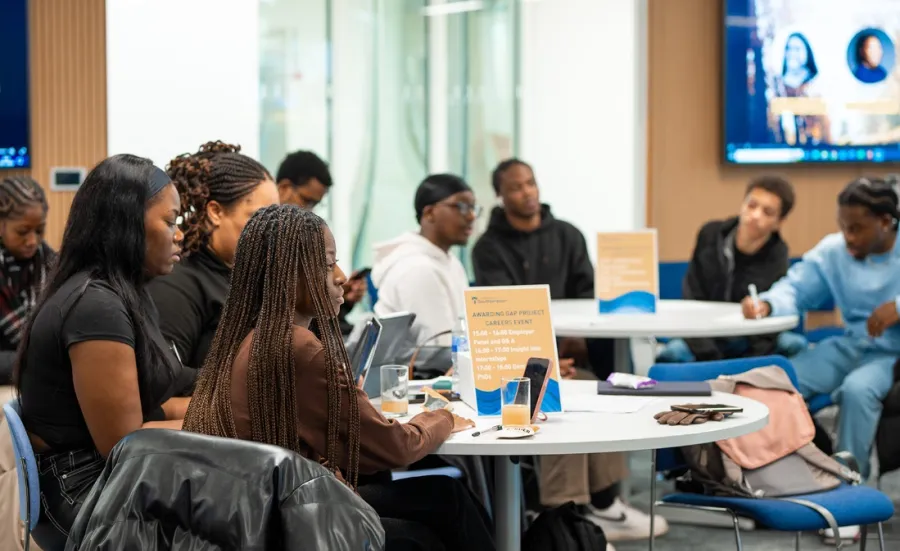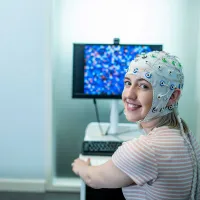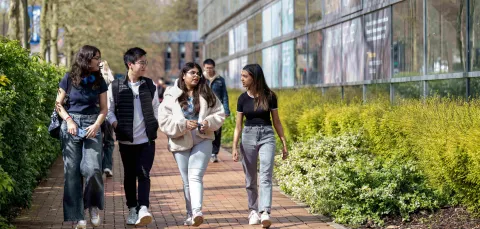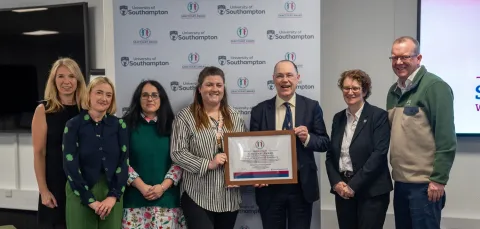Our student-led Awarding Gap Project is helping to tackle educational inequality by creating a welcoming and supportive community for Black students at Southampton.
In the UK, Black, Asian and minoritised students are much less likely than their white peers to be awarded top degrees. During 2021/22, there was a gap of 18.3 percentage points between Black and white students.
This inequality highlights serious issues and challenges within our education system. We urgently need to improve equality and inclusion, address barriers to success and systemic bias, and increase access to support and resources.
Through our work in Widening Participation and Social Mobility (WPSM), we're committed to creating a more equitable education experience, and closing this attainment gap is the focus of one of our most successful projects.
Creating a community for Black students
The Awarding Gap Project was formed by the Student Inclusion team to tackle this issue and has made great progress in creating permanent, impactful change to improve the experiences and outcomes for our Black student community.
The Project is led by students who are paid for their work and supported by staff within the WPSM team. Since its creation in 2022, the Project has created a visible and active space for Black students at Southampton, with its ethos based on community, culture and curriculum.
So far, the team has organised and hosted events, contributed to panels, collaborated with the University’s Equality, Diversity and Inclusion (EDI) team, created and published a Black Freshers’ Guide, and produced the Bridging the Gap podcast.
This work is designed to provide peer-led support for, and increase engagement with, our Black student community.
The power to change the University experience
Putting students at the heart of the Project ensures that they have the power and opportunity to change and improve the University experience for not just themselves, but for their peers and for future students, too. They decide what the priorities and projects are, what they want to focus on, and the overall direction of the project.
While it started with eight students from Black heritage backgrounds, there are now 31 students employed on the project in a range of roles which provide flexible work around studies, employment and other responsibilities.
Chido Chipato, Student Inclusion Manager, oversees the Awarding Gap Project, and is passionate about the peer-led element of the work.
“We view students as experts of their own experience. There's a rich diversity in their lived experiences,” she says.
“They’re encouraged to say exactly how they feel about things, what they experience, and what they don’t like, which leads to much more authentic change.”
Project members and event participants are encouraged to hold the University to account so that the work can be focused where it’s most needed.
JJ’s experience of building a network
Working on the Project not only offers students the chance to influence the University, but it's also a great development opportunity.
JJ is a second-year Criminology and Psychology student who works on the Project.
“This role has helped me branch out and be confident in my public speaking and networking skills. I can work in a team of varying backgrounds and opinions,” she says.
“A highlight for me is being able to create something tangible that I can look back on and say, ‘wow, I was a part of that’. I've made such a network of people and it's a space for me to have fun and just breathe.”
The flexibility of these paid roles also offers the option for students to give as much time as they can while still prioritising their studies and responsibilities. With various levels of commitment, and different positions available, participants can work to their strengths, learn new skills, and make an impact in areas they’re particularly passionate about.
Breaking down stereotypes
It's not just about creating exciting social opportunities and making positive changes to the student experience, but also emphasising the realities of the higher education experience for many underrepresented and minoritised students.
“We’re highlighting the diversity of higher education and changing what the landscape looks like to reflect the wider world, while supporting students who are here to know that they have a place here for them,” Chido explains.
“Doing this work is so fulfilling, but I think it's also out of necessity,” she adds. “Ultimately, higher education is not equitable.”
It also offers a learning opportunity, with the chance for staff and students to better understand diversity, racial inequality and bias through authentic and open conversations and collaborations.
Tackling inequalities at university with projects like this can go on to make a difference in later experiences, ensuring disparities don’t have a long-term impact on careers, professional achievement, and personal wellbeing.
“The sense of belonging has really increased for the students who participate on the Awarding Gap Project,” concludes Chido. “We’re seeing their confidence, and their ability to command and take up space, grow.”
“As a practitioner, I feel like that's the greatest thing: to be able to see the development of students from the time that we start working with them to the end.”



